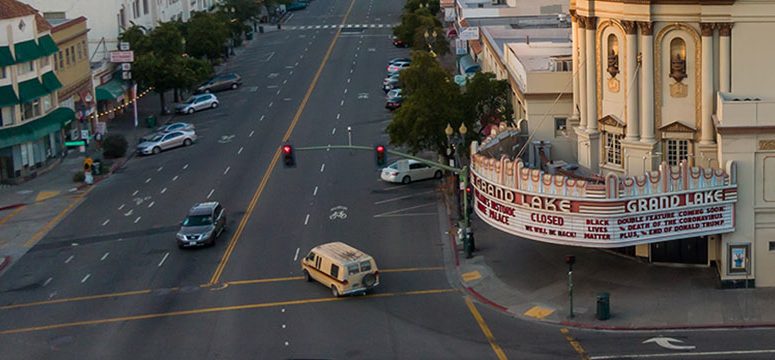Her approval rating on
the rise amid a difficult election battle, Sen. Kirsten Gillibrand
(D-NY) joined the president's campaign against childhood obesity this
week by proposing $1 billion in loans and grants to build healthier
neighborhood grocery stores and farmers' markets.
 The view
The viewfrom one type of "food desert." (Photo: Springfield
Institute)
Gillibrand's legislation, co-sponsored
in the House by Rep. Nydia Velazquez (D-NY), aligns with the $400
million healthy food plan included
in the 2011 White House budget. Both programs would follow the
template of Pennsylvania's Healthy Food Financing Initiative by offering
loans and grants to help construct new grocery stores, farmers'
markets, and other food outlets in historically under-served
neighborhoods.
The bill aims to eradicate the growing phenomenon of "food
deserts," the moniker advocates have bestowed on lower-income areas
-- in New York and Chicago as well as in more rural areas -- where the
lack of access to fresh food leaves residents dependent on sugary,
fattening fast-food alternatives.
Traveling outside a food desert is often impossible without a car,
an option out of reach for many of the neighborhoods' most needy
residents.
Research on travel behavior conducted by the University of
California-Davis' Susan Handy found
that in areas where markets and other stores were one-fifth of a
mile or less from most homes, 87 percent of residents regularly walked
to run errands. When that average distance between home and market
increased to three-fifths of a mile, the share of even periodic foot
travelers dropped to one-third.
Gillibrand's office also highlighted the job-creation potential of
healthier food access, estimating in
a release that the $1 billion grant program would create 200,000
new jobs nationwide and 26,000 in New York City.





